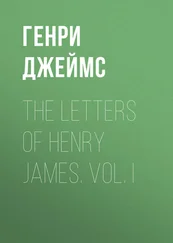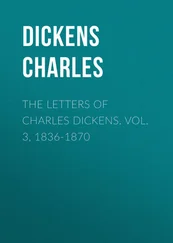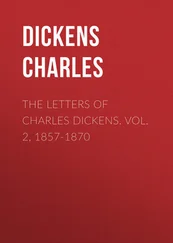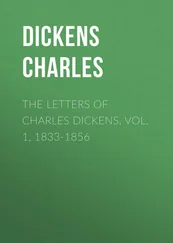William James - The Letters of William James, Vol. 2
Здесь есть возможность читать онлайн «William James - The Letters of William James, Vol. 2» — ознакомительный отрывок электронной книги совершенно бесплатно, а после прочтения отрывка купить полную версию. В некоторых случаях можно слушать аудио, скачать через торрент в формате fb2 и присутствует краткое содержание. Жанр: Биографии и Мемуары, Философия, foreign_edu, foreign_antique, на английском языке. Описание произведения, (предисловие) а так же отзывы посетителей доступны на портале библиотеки ЛибКат.
- Название:The Letters of William James, Vol. 2
- Автор:
- Жанр:
- Год:неизвестен
- ISBN:нет данных
- Рейтинг книги:3 / 5. Голосов: 1
-
Избранное:Добавить в избранное
- Отзывы:
-
Ваша оценка:
- 60
- 1
- 2
- 3
- 4
- 5
The Letters of William James, Vol. 2: краткое содержание, описание и аннотация
Предлагаем к чтению аннотацию, описание, краткое содержание или предисловие (зависит от того, что написал сам автор книги «The Letters of William James, Vol. 2»). Если вы не нашли необходимую информацию о книге — напишите в комментариях, мы постараемся отыскать её.
The Letters of William James, Vol. 2 — читать онлайн ознакомительный отрывок
Ниже представлен текст книги, разбитый по страницам. Система сохранения места последней прочитанной страницы, позволяет с удобством читать онлайн бесплатно книгу «The Letters of William James, Vol. 2», без необходимости каждый раз заново искать на чём Вы остановились. Поставьте закладку, и сможете в любой момент перейти на страницу, на которой закончили чтение.
Интервал:
Закладка:
As for the MacMonnies Bacchante, 16 16 For a short while MacMonnies's Bacchante stood in the court of the Boston Public Library.
I only saw her faintly looming through the moon-light one night when she was sub judice , so can frame no opinion. The place certainly calls for a lightsome capricious figure, but the solemn Boston mind declared that anything but a solemn figure would be desecration. As to her immodesty, opinions got very hot. My knowledge of MacMonnies is confined to one statue, that of Sir Henry Vane, also in our Public Library, an impressionist sketch in bronze (I think), sculpture treated like painting—and I must say I don't admire the result at all . But you know ; and I wish I could see other things of his also. How I wish I could talk with Rosina, or rather hear her talk, about Paris, talk in her French which I doubt not is by this time admirable. The only book she has vouchsafed news of having read, to me, is the d'Annunzio one, which I have ordered in most choice Italian; but of Lemaître, France, etc., she writes never a word. Nor of V. Hugo. She ought to read "La Légende des Siècles." For the picturesque pure and simple, go there! laid on with a trowel so generous that you really get your glut. But the things in French literature that I have gained most from—the next most to Tolstoy, in the last few years—are the whole cycle of Geo. Sand's life: her "Histoire," her letters, and now lately these revelations of the de Musset episode. The whole thing is beautiful and uplifting—an absolute "liver" harmoniously leading her own life and neither obedient nor defiant to what others expected or thought.
We are passing the summer very quietly at Chocorua, with our bare feet on the ground. Children growing up bullily, a pride to the parental heart.... Alice and I have just spent a rich week at North Conway, at a beautiful "place," the Merrimans'. I am now here at a really grand place, the Dorrs'—tell Rosina that I went to a domino party last night but was so afraid that some one of the weird and sinister sisters would speak to me that I came home at 12 o'clock, when it had hardly begun. I am so sensitive! Tell her that a lady from Michigan was recently shown the sights of Cambridge by one of my Radcliffe girls. She took her to the Longfellow house, and as the visitor went into the gate, said, "I will just wait here." To her surprise, the visitor went up to the house, looked in to one window after the other, then rang the bell, and the door closed upon her. She soon emerged, and said that the servant had shown her the house. "I'm so sensitive that at first I thought I would only peep in at the windows. But then I said to myself, 'What's the use of being so sensitive?' So I rang the bell."
Pray be happy this summer. I see nothing more of Rosina's in the papers. How is that sort of thing going on?… As for your mother, give her my old-fashioned love. For some unexplained reason, I find it very hard to write to her—probably it is the same reason that makes it hard for her to write to me—so we can sympathize over so strange a mystery. Anyhow, give her my best love, and with plenty for yourself, old Bay, and for Rosina, believe me, yours ever,
WM. JAMES.To E. L. Godkin
Dear Godkin,—Thanks for your kind note in re "Will to Believe." I suppose you expect as little a reply to it as I expected one from you to the book; but since you ask what I du mean by Religion, and add that until I define that word my essay cannot be effective, I can't forbear sending you a word to clear up that point. I mean by religion for a man anything that for him is a live hypothesis in that line, altho' it may be a dead one for anyone else. And what I try to show is that whether the man believes, disbelieves, or doubts his hypothesis, the moment he does either, on principle and methodically, he runs a risk of one sort or the other from his own point of view. There is no escaping the risk; why not then admit that one's human function is to run it? By settling down on that basis, and respecting each other's choice of risk to run, it seems to me that we should be in a clearer-headed condition than we now are in, postulating as most all of us do a rational certitude which doesn't exist and disowning the semi-voluntary mental action by which we continue in our own severally characteristic attitudes of belief. Since our willing natures are active here, why not face squarely the fact without humbug and get the benefits of the admission?
I passed a day lately with the [James] Bryces at Bar Harbor, and we spoke—not altogether unkindly—of you. I hope you are enjoying, both of you, the summer. All goes well with us. Yours always truly,
WM. JAMES.To F. C. S. Schiller [Corpus Christi, Oxford]
Dear Schiller,—Did you ever hear of the famous international prize fight between Tom Sayers and Heenan the Benicia Boy, or were you too small a baby in 1857 [1860?] The "Times" devoted a couple of pages of report and one or more eulogistic editorials to the English champion, and the latter, brimming over with emotion, wrote a letter to the "Times" in which he touchingly said that he would live in future as one who had been once deemed worthy of commemoration in its leaders. After reading your review of me in the October "Mind" (which only reached me two days ago) I feel as the noble Sayers felt, and think I ought to write to Stout to say I will try to live up to such a character. My past has not deserved such words, but my future shall. Seriously, your review has given me the keenest possible pleasure. This philosophy must be thickened up most decidedly—your review represents it as something to rally to, so we must fly a banner and start a school. Some of your phrases are bully: "reckless rationalism," "pure science is pure bosh," "infallible a priori test of truth to screen us from the consequences of our choice," etc., etc. Thank you from the bottom of my heart!
The enclosed document [a returned letter addressed to Christ Church] explains itself. The Church and the Body of Christ are easily confused and I haven't a scholarly memory. I wrote you a post-card recently to the same address, patting you on the back for your article on Immortality in the "New World." A staving good thing. I am myself to give the "Ingersoll Lecture on Human Immortality" here in November—the second lecturer on the foundation. I treat the matter very inferiorly to you, but use your conception of the brain as a sifting agency, which explains my question in the letter. Young [R. B.] Merriman is at Balliol and a really good fellow in all possible respects. Pray be good to him if he calls on you. I hope things have a peacock hue for you now that term has begun. They are all going well here. Yours always gratefully,
W. J.To James J. Putnam
Dear Jim,—On page 7 of the "Transcript" tonight you will find a manifestation of me at the State House, protesting against the proposed medical license bill.
If you think I enjoy that sort of thing you are mistaken. I never did anything that required as much moral effort in my life. My vocation is to treat of things in an all-round manner and not make ex-parte pleas to influence (or seek to) a peculiar jury. Aussi , why do the medical brethren force an unoffending citizen like me into such a position? Legislative license is sheer humbug—mere abstract paper thunder under which every ignorance and abuse can still go on. Why this mania for more laws? Why seek to stop the really extremely important experiences which these peculiar creatures are rolling up?
Bah! I'm sick of the whole business, and I well know how all my colleagues at the Medical School, who go only by the label, will view me and my efforts. But if Zola and Col. Picquart can face the whole French army, can't I face their disapproval?—Much more easily than that of my own conscience!
Читать дальшеИнтервал:
Закладка:
Похожие книги на «The Letters of William James, Vol. 2»
Представляем Вашему вниманию похожие книги на «The Letters of William James, Vol. 2» списком для выбора. Мы отобрали схожую по названию и смыслу литературу в надежде предоставить читателям больше вариантов отыскать новые, интересные, ещё непрочитанные произведения.
Обсуждение, отзывы о книге «The Letters of William James, Vol. 2» и просто собственные мнения читателей. Оставьте ваши комментарии, напишите, что Вы думаете о произведении, его смысле или главных героях. Укажите что конкретно понравилось, а что нет, и почему Вы так считаете.












